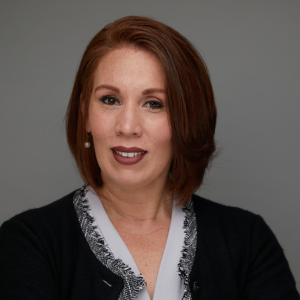Op-Ed: Go Ahead, Burn That Bridge – How to Stop Being a People Pleaser
 During a two decade career in executive search, it was my job to call the most successful people in the world and recruit them away on behalf of my clients. They were successful, which is why I was calling them. But despite all this success, they weren’t very happy, which is why they were calling me back. Over time, I became fascinated with the question, “Why doesn’t success equal happiness?”
During a two decade career in executive search, it was my job to call the most successful people in the world and recruit them away on behalf of my clients. They were successful, which is why I was calling them. But despite all this success, they weren’t very happy, which is why they were calling me back. Over time, I became fascinated with the question, “Why doesn’t success equal happiness?”
One reason stood out: Most of us were handed a definition of success by someone else. In other words, when we were younger, someone – perhaps a parent, a teacher, a friend, even a celebrity – told us who we should be when we grew up, and we adopted it, either consciously or subconsciously, until it became our path.
For me, there was a fourth grade teacher who told me that I was argumentative and should become a lawyer. There was a grandmother who wanted me to marry a nice Jewish doctor. There was the boss who wanted me to maximize his profit margin. For each of these people, I jumped through hoops. And then one day, I woke up and asked myself, when all the boxes were so full, why did I still feel so empty?
Once I identified the problem, I was aghast: it was me. I was trying so hard to please everyone around me that I didn’t stop to ask myself if what I was doing was really pleasing me.
If this sounds all too familiar, you are not alone. According to a survey conducted by YouGov, “About half (49%) of Americans say they would self-identify as people-pleasers. Women (56%) are more likely than men (42%) to say they would describe themselves this way.” Psychology Today notes that people pleasing, at its roots, comes from insecurity (probably based in early childhood), a lack of confidence, and an aversion to conflict. When I wanted to get to the bottom of this, I had to look in the mirror, but I also had to look at who was surrounding me, and who I was so afraid would reject me.
“People won’t like the me I really want to be.”
I hear that a lot from individuals in my executive coaching practice who come to me when they’ve had just enough success to see a version of their increased potential that they never knew existed. I call this moment Wonderhell. It’s amazing and exciting and humbling to achieve something you didn’t think possible. But it also introduces uncertainty, doubt, impostor syndrome, and exhaustion. It’s wonder and it’s hell. It’s Wonderhell, and it’s the space in between who you were yesterday and who you just realized you can become tomorrow.
In this space, we have two choices. First, we can either continue to please the people from our yesterdays. Some of these people are incredibly helpful allies, supporters, and champions. Perhaps they love you and don’t want to see you get hurt. Perhaps they are jealous and, when they see your rise, can only reflect on their own stagnation. Perhaps they are scared and think, “You can’t do that. That’s too scary!” And what they really mean is “I can’t do that. I’m too scared.” But, what about the ones who aren’t so well meaning?
Herein lies the second choice. When we stop pleasing the people whose lack of imagination is holding back our ambitions, we can make room for the people who should populate our tomorrows. It’s not that those other people won’t like the new, real, bigger you. It’s that those people’s opinions no longer matter.
Burn That Bridge
It’s not just people in your intimate physical circle, either. The influences that compel you to please others come from social media, too.
Did you know that people with overweight friends are 57% more likely to become overweight themselves, even if those friends live on the other side of the country? Your emotional connection, not your physical proximity, is the key factor. Studies show that the behavior of your closest intimates—wherever they are—influences the way you behave.
So whether it is slacking on your diet or exercise plan, or deciding an unfulfilling career path, personal relationship or hobby, what they do becomes what you do. What they think becomes what you think. What they normalize becomes what you normalize. Which begs the question: are you pleasing people who make you better, or who make you worse?
Each time you want to run full speed into your next Wonderhell, you’ll find friction with those who aren’t going there with you. They won’t like the you that you want to become. But why let them define your success? Why should they get a vote about what or who you should be? When you grow—when your life gets bigger—you are inevitably going to outgrow the people who liked you when you were smaller.
It’s time to stop giving votes in your life to people who shouldn’t even have voices.
Laura Gassner Otting is the author of Wonderhell: Why Success Doesn’t Feel Like It Should… and What To Do About It, where she explores themes such as impostor syndrome, doubt, and burnout. She can be found everywhere @heyLGO and at LauraGassnerOtting.com.
(The opinions and views of guest contributions are not necessarily those of theglasshammer.com).


